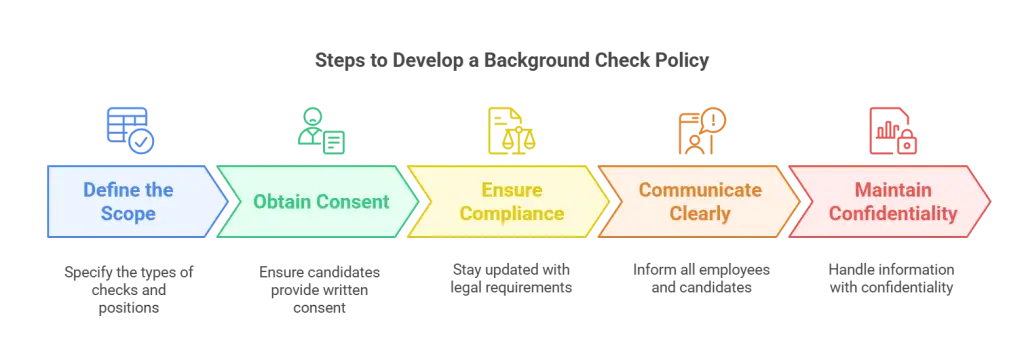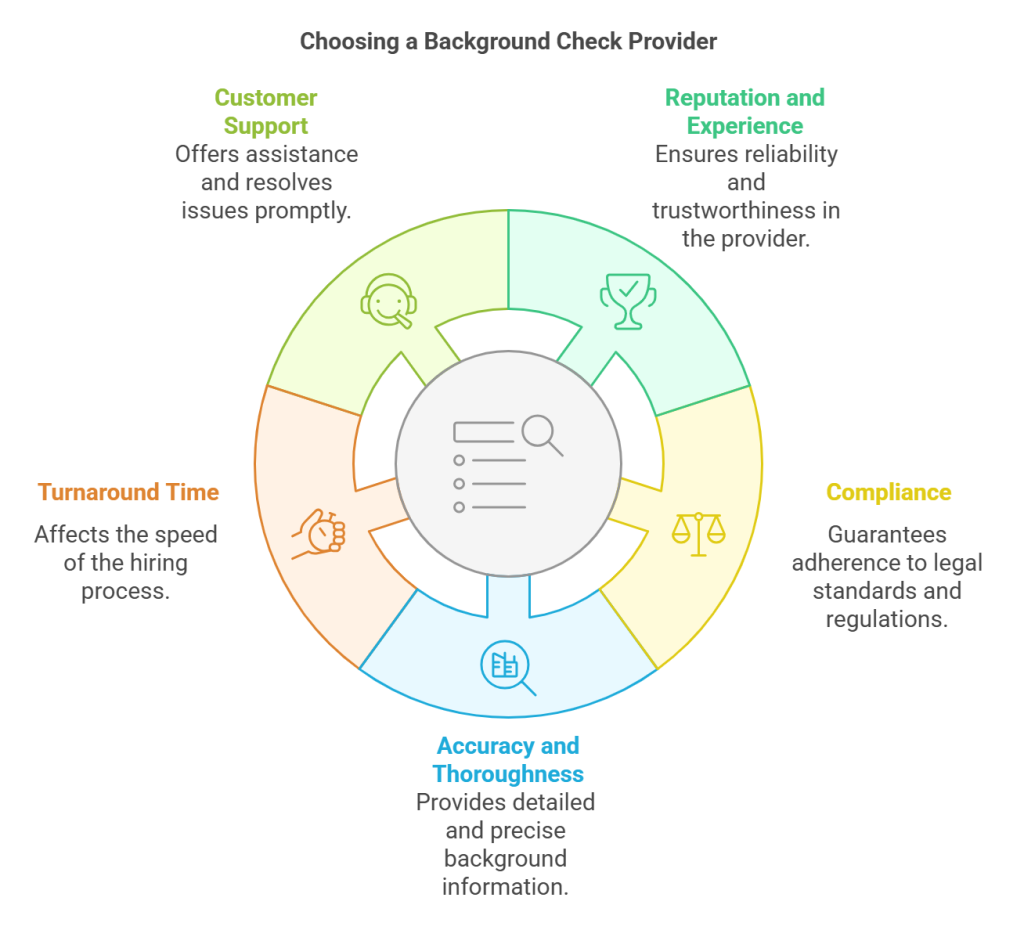Understanding Background Checks in New York
Legal Requirements and Compliance
New York has specific laws governing background checks. Employers must comply with these laws to avoid legal issues. One of the most crucial requirements is obtaining written consent from candidates before conducting any background check. This consent must be clear and separate from the application form.
Due to New York’s position as a major business hub with a highly diverse workforce, these regulations emphasize individualized assessments and protections against discrimination based on criminal history. For example, New York's Fair Chance Act requires employers to wait until after a conditional job offer is made before conducting a criminal background check. Compliance with these laws not only ensures legal protection but also aligns with the city’s commitment to fair and equitable hiring practices, setting a standard for businesses.
EXPERT INSIGHT: New York, New York! Can you hear the rhythm? People from across the globe flock to the Big Apple, drawn by its endless opportunities. This melting pot of diversity makes it essential for New York to uphold fair and equitable hiring processes, including comprehensive background checks. These measures ensure a balanced and inclusive workforce that reflects the city's dynamic spirit. Dive into this article to gain a deeper understanding of how these processes work and why they are so crucial. - Emile Garcia, SHRM-SCP, CHRP, CHRBP
Employers must also provide copies of the background check report to the candidates if any adverse action is considered. The Fair Chance Act, a significant piece of legislation, restricts the use of criminal history in hiring decisions. Under this act, employers cannot inquire about a candidate's criminal record until after a conditional job offer is made. Suppose the employer decides to rescind the offer based on the criminal record. In that case, they must follow specific procedures, including providing a written explanation and allowing the candidate to respond.
Types of Background Checks
Background checks encompass various types depending on the employer's needs. Each type offers different insights into a candidate's history and suitability for a position.
Criminal Background Checks: These checks reveal criminal history, including convictions, arrests, and incarcerations. They help employers assess if a candidate poses any risk.
Employment Verification: This check confirms a candidate's employment history, including job titles, dates of employment, and reasons for leaving. It ensures the accuracy of the information provided by the candidate.
Education Verification: This type verifies the educational qualifications claimed by the candidate, including degrees, certificates, and the institutions attended. It's crucial for positions requiring specific academic credentials.
Credit Checks: These checks review a candidate's credit history, which can be relevant for roles involving financial responsibilities. They provide insights into the candidate's financial stability and trustworthiness.
Best Practices for Conducting Background Checks
Creating a Background Check Policy
A well-defined background check policy is essential for consistency and transparency. Start by outlining the types of checks you will perform and the circumstances under which they will be used. Ensure your policy complies with New York's legal requirements and is communicated clearly to all employees and candidates.
Here are steps to develop an effective policy:

- Define the Scope: Specify the types of background checks to be conducted and the positions for which they are required.
- Obtain Consent: Ensure candidates provide written consent before background checks are initiated.
- Ensure Compliance: Stay updated with New York’s legal requirements and incorporate them into your policy.
- Communicate Clearly: Ensure all employees and candidates know the background check policy.
- Maintain Confidentiality: Handle all background check information with the utmost confidentiality.
Selecting a Background Check Service
Choosing the right background check service is critical. Look for providers with a good reputation and experience in New York. Compare features, costs, and turnaround times to find the best fit for your needs. Reliable services can help ensure thorough and accurate checks.
Consider the following criteria when selecting a service provider:

- Reputation and Experience: Choose a provider with a strong track record and experience conducting background checks in New York.
- Compliance: Ensure the provider understands and adheres to New York’s legal requirements.
- Accuracy and Thoroughness: Look for a provider that offers comprehensive and accurate reports.
- Turnaround Time: Consider the time it takes to complete a background check, as delays can impact your hiring process.
- Customer Support: Opt for a provider that offers reliable customer support to address any issues or concerns.
Common Challenges and How to Overcome Them
Handling Adverse Information
Finding negative information during a background check can be challenging. It's important to handle such situations fairly and consistently. Consider the nature of the information, its relevance to the job, and the candidate's explanation. Always follow legal guidelines when making decisions based on adverse information.
Here are the best practices for handling adverse information:
- Evaluate Relevance: Assess how the adverse information relates to the job requirements.
- Consider Context: Take into account the circumstances and the candidate’s explanation.
- Follow Legal Procedures: Adhere to legal requirements, such as providing written explanations and opportunities for the candidate to respond.
- Be Consistent: Apply the same standards and procedures for all candidates to ensure fairness.
- Document Decisions: Keep detailed records of the decision-making process for future reference.
Staying Updated with Legal Changes
Background check laws can change frequently. HR professionals must stay informed about new regulations and updates. Regular training, subscribing to relevant legal resources and attending HR conferences can help. Keeping your background check policies and practices up to date ensures compliance and minimizes legal risks.
Consider the following tips to stay updated:
- Regular Training: Participate in training sessions to stay informed about the latest legal requirements.
- Legal Resources: Subscribe to legal newsletters and updates from reliable sources.
- Professional Networks: Join HR and industry associations to network with peers and stay informed.
- Legal Counsel: Consult legal experts to ensure your policies and practices comply with current laws.
- Policy Reviews: Regularly review and update your background check policies to reflect any changes in the law.
FAQ Section
What are the legal requirements for background checks in New York?
New York requires employers to obtain consent before conducting a background check. They must also provide copies of the reports to candidates and adhere to the Fair Chance Act, which restricts the use of criminal history in hiring decisions.
How does the Fair Chance Act affect background checks?
The Fair Chance Act limits how employers can use criminal history when hiring. Employers cannot ask about criminal history until a conditional offer is made. If they withdraw the offer, they must also follow specific procedures based on this information.
What types of background checks are most commonly used by employers?
Common types include criminal background checks, employment verification, education verification, and credit checks. Each type provides different insights into a candidate's history and suitability.
How can HR ensure compliance with background check laws?
HR can ensure compliance by staying informed about current laws and regulations. Developing clear, consistent policies and providing regular staff training can also help. Working with reputable background check service providers who understand New York's legal requirements is essential.
What should be included in a background check policy?
A background check policy should outline the types of checks performed, when they will be conducted, and how the information will be used. It should also include procedures for obtaining consent, handling adverse information, and ensuring compliance with legal requirements.

